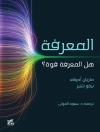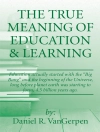The Japanese concept of akogare has become well known in TESOL-related literature in recent years, usually in the context of interracial sexual desire. In this far-reaching new study of the internationalization of Japanese Higher Education, Chisato Nonaka uses akogare as both an analytical lens and the object of enquiry, and ultimately reconceptualises it as the creation of a space where individuals negotiate and transcend their ethnic, national, racial, gender or linguistic identities. The book innovatively engages with the often controversial binary of Japanese/non-Japanese, and demonstrates how Japan (often thought of as a homogenous nation) may be at a critical crossroads where long-held assumptions about a singular ‘Japanese identity’ no longer hold true. The book has profound implications for how ‘internationalization’ can mean more than just the use of English.
Daftar Isi
Acknowledgements
Abstract
Foreword
Table of Contents
List of Tables
List of Figures
Chapter 1. Introduction
Chapter 2. Akogare and My Study Participants
Chapter 3. Akogare in Academic Literature and the Akogare Theoretical Framework
Chapter 4. Methodology
Chapter 5. Akogare and Gender
Chapter 6. Akogare and Precarious “Japan”
Chapter 7. Akogare and Japanese Higher Education Today
Chapter 8. Conclusion and Future Implications
Appendix
References
Tentang Penulis
Chisato Nonaka is an Associate Professor in the International Student Center, Kyushu University, Japan. Her research interests include issues of linguistic, racial, ethnic, national, class and gender-related identities, particularly in transnational education contexts.
![Chisato Nonaka: Transcending Self and Other Through Akogare [Desire] (ePUB) Sampul Chisato Nonaka: Transcending Self and Other Through Akogare [Desire] (ePUB)](https://static.worldofdigitals.com/info_webp/725/9781788921725.webp)











